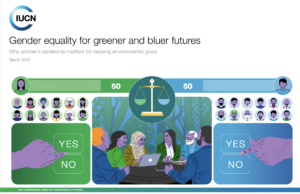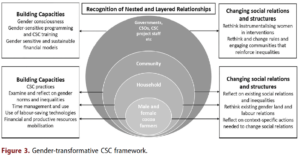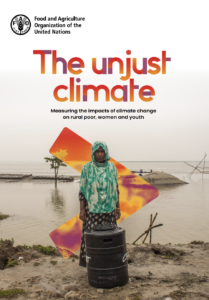This study provides information on how to assess the monetary value of gendered work, include it in the economic analysis of climate change, understand the economic value of integrating gender in climate change policies, and raise greater awareness. It also provides practical tools and approaches to incorporate gender economy into climate change policies.
This report provides an assessment of the challenges in developing a unified methodological framework based on assigning monetary values to processes of climate change and gender relations. It then describes the mechanics, strengths, and weakness of the four frameworks that are currently available, before presenting an example that demonstrates the insights that can be gained from monetarily ‘valuing’ the contribution of gendered work to an economic subject and climate change.
This report is developed by UN Women under the regional project “EmPower: Women for Climate Resilient Societies”
that aims to help women and marginalized groups to leverage their knowledge, capacities and skills in adapting to and
mitigating climate change and reducing disaster risks in Bangladesh, Cambodia, Viet Nam and elsewhere across the region. The project also aims to measure both the costs and relative benefits of both climate change and gender equality
investments. The purpose of this report is to provide further evidence of the interlinkages between gender, the economy and climate change, in order to demonstrate the need to develop a unified methodological framework that allows gender, economy and climate change interlinkages to be brought together for the purposes of analysis, advocacy and policy-making.
Authors: Haroon Akram-Lodhi and Amy Reggers
Source: UNWomen



